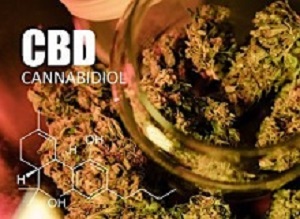 Interest has been growing in the use of cannabinoids – the active chemicals in cannabis or marijuana – for the treatment of epilepsy in children. A recent analysis of relevant published studies indicates that this strategy looks promising.
Interest has been growing in the use of cannabinoids – the active chemicals in cannabis or marijuana – for the treatment of epilepsy in children. A recent analysis of relevant published studies indicates that this strategy looks promising.
The analysis included four randomised controlled trials and 19 non-randomised studies, primarily involving cannabidiol, a particular type of cannabinoid that does not have psychoactive effects.
Among randomised controlled trials involving children with severe forms of epilepsy, there was no statistically significant difference between cannabidiol and placebo in terms of freedom from seizures, sleep disruption, or vomiting. There was a statistically significant reduction in the median frequency of monthly seizures with cannabidiol compared with placebo and an increase in number of participants with at least a 50% reduction in seizures.
"Although we saw no significant difference in the number of children who became completely seizure free, we that found a significant number of these children achieved a 50% or more reduction in seizures. Any reduction in seizures has a striking impact on the lives of these children and their families," said lead author Jesse Elliott, of the University of Ottawa, in Canada. "Research in this area is active, and we expect a dramatic increase in the number of studies over the next few years."
Abstract
Objective: To assess the benefits and harms of cannabis‐based products for pediatric epilepsy.
Methods: We identified in this living systematic review randomized controlled trials (RCTs) and nonrandomized studies (NRSs) involving children with epilepsy treated with cannabis‐based products. We searched MEDLINE, Embase, PsycINFO, Cochrane Library, and gray literature (April 25, 2018). The primary outcome was seizure freedom; secondary outcomes were seizure frequency (total, ≥50% reduction), quality of life, sleep, status epilepticus, death, gastrointestinal adverse events, and visits to the emergency room. Data were pooled by random‐effects meta‐analysis. Risk of bias was assessed for each study, and GRADE was used to assess the quality of evidence for each outcome.
Results: Four RCTs and 19 NRSs were included, primarily involving cannabidiol. All RCTs were at low risk of bias, whereas all NRSs were at high risk. Among RCTs, there was no statistically significant difference between cannabidiol and placebo in seizure freedom (relative risk [RR] = 6.77, 95% confidence interval [CI] = 0.36‐128.38; 1 RCT), quality of life (mean difference = 0.6, 95% CI = −2.6 to 3.9; 3 RCTs), sleep disruption (mean difference = −0.3, 95% CI = −0.8 to 0.2; 3 RCTs), or vomiting (RR = 1.00, 95% CI = 0.51‐1.96; 4 RCTs). There was a statistically significant reduction in the median frequency of monthly seizures with cannabidiol compared with placebo (−19.8%, 95% CI = −27.0% to −12.6%; 3 RCTs) and an increase in the number of participants with at least a 50% reduction in seizures (RR = 1.76, 95% CI = 1.07‐2.88; 1 RCT) and diarrhea (RR = 2.25, 95% CI = 1.38‐3.68; 3 RCTs). Death and status epilepticus were infrequently reported.
Significance: Evidence from high‐quality RCTs suggests that cannabidiol probably reduces seizures among children with drug‐resistant epilepsy (moderate certainty). At this time, the evidence base is primarily limited to cannabidiol, and these findings should not be extended to all cannabis‐based products.
Authors
Jesse Elliott, Deirdre DeJean, Tammy Clifford, Doug Coyle, Beth K Potter, Becky Skidmore, Christine Alexander, Alexander E Repetski, Vijay Shukla, Bláthnaid McCoy, George A Wells
[link url="https://www.sciencedaily.com/releases/2018/12/181205093644.htm"]Wiley material[/link]
[link url="https://onlinelibrary.wiley.com/doi/abs/10.1111/epi.14608"]Epilepsia abstract[/link]
